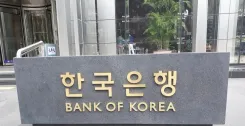Will South Korea Achieve Progress in US Trade Talks Before APEC Summit?

Synopsis
Key Takeaways
- South Korea is seeking progress in stalled trade negotiations with the U.S..
- The APEC summit could serve as a pivotal moment for finalizing a trade deal.
- President Lee's 'END' initiative aims to enhance dialogue with North Korea.
- Inter-Korean relations remain tenuous amid the ongoing challenges.
- Cautious optimism surrounds potential resumption of talks between Trump and Kim.
Seoul, Sep 24 (NationPress) The presidential office of South Korea has expressed optimism about making headway in the long-stalled trade negotiations with the United States prior to the upcoming Asia-Pacific Economic Cooperation (APEC) summit. Seoul is aiming to finalize an agreement even before the APEC summit takes place.
National Security Advisor Wi Sung-lac shared these insights while accompanying President Lee Jae Myung on his recent trip to New York. The ongoing trade discussions have seen minimal progress, particularly concerning Seoul's USD 350 billion investment commitment that is tied to a reduction in U.S. tariffs on Korean goods from 25% to 15%.
As negotiations continue, Wi noted that the APEC summit, scheduled for late October in Gyeongju, could present a significant opportunity to finalize a trade deal.
"It would be favorable to finalize a trade agreement in relation to the APEC summit, but negotiators are also working with the understanding that a consensus could be reached prior to that if mutual agreement is achieved," Wi told reporters.
This summit is expected to provide a platform for President Lee's second meeting with U.S. President Donald Trump, who has confirmed his attendance.
Wi also mentioned that Seoul is actively communicating its stance on the necessity of a currency swap deal with Washington, expressing hope for mutual understanding.
During his visit to New York, Lee engaged with a group of U.S. lawmakers, detailing Seoul's investment pledge and the challenges faced in the ongoing trade discussions, seeking their support for a potential agreement.
Wi further elaborated on Lee's "END" initiative regarding dialogue with North Korea — encompassing exchange, normalization, and denuclearization — which the president presented during his address at the UN General Assembly.
He characterized this initiative as an integrated strategy aimed at ending confrontations and hostilities on the Korean Peninsula, despite Pyongyang's dismissal of Seoul's peace proposals, as reported by the Yonhap news agency.
"Lee aims to address the issues surrounding the Korean Peninsula through a holistic approach founded on these principles," Wi stated, clarifying that there is no specific order among the three components.
He added that these principles have been reiterated in prior inter-Korean agreements and in the 2018 Singapore declaration made between President Trump and North Korean leader Kim Jong-un.
Wi's comments arrive amidst cautious optimism regarding a potential revival of talks between Trump and Kim, who previously met three times during Trump's initial term.
Trump has indicated a readiness to re-engage in discussions with North Korea, while Kim has mentioned he retains positive memories of Trump but has urged Washington to ease its demands for denuclearization.
While Lee's three-phase denuclearization roadmap begins with a "halt" to nuclear and missile activities, moving through a "reduction" phase and culminating in "dismantlement," Wi affirmed that the END initiative serves as a comprehensive framework that includes denuclearization as well as the dynamics of inter-Korean and U.S.-North Korea relations.
When asked about Seoul's preparations for improving relations with Pyongyang, Wi remarked that a thaw in inter-Korean relations appears unlikely in the immediate future, as the North has been "very negative" regarding dialogue with the South, while showing less hostility towards Washington.
"As far as I am aware, no significant discussions are currently occurring between the U.S. and North Korea," he added.









